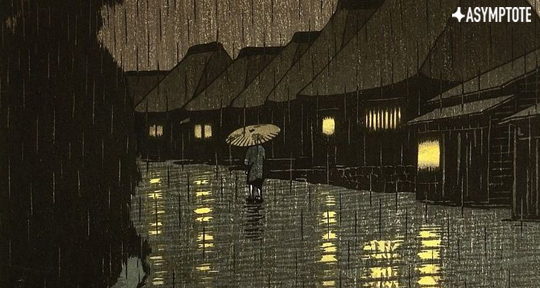Toddler Hunting and Other Stories, collection written by Kono Taeko, translated from the Japanese by Lucy North and Lucy Lower, New Directions, 2018
Reviewed by Clayton McKee, Copy Editor
Interior and exterior, public and private, Kono Taeko explores constructed façades in social situations and crashes them down in intimate settings. Each of the narratives in Toddler Hunting and Other Stories delves into the feminine psyche and investigates themes of motherhood and family. Shifts from exterior persona to interior desire rupture Kono’s cold prose, shocking the reader out of socially normative interactions and thrusting them into the taboos lurking deep inside, followed by a quick return to her straight-faced writing. This keeps readers on their toes, not knowing when the next rupture will occur. Contrasting the interior with the exterior and social expectations with personal desires has the effect of enrapturing, sometimes shocking the reader, plunging them into the depths of her/his own imaginary and propelling each story forward.
Kono Taeko is considered amongst the most influential Japanese women writers that first made an appearance in the 1960s. Her impressive portfolio includes over a dozen works in Japanese, all centered on unexplored aspects of human character—female characters in particular, further pushing the envelope not only on these unexplored aspects but also on a gender that was underexplored in Japanese literature at the time. Kono comes to the English-speaking world in this translated collection published by New Directions, which includes a lot of her short fiction written during the sixties. Not only was she the first woman to be on the committee for the Akutagawa Literary Prize, but she also received that prize in 1963, followed by the Yomiuri Prize in 1969 and the Tanizaki Prize in 1980. Before dying in 2015, she was also awarded a Bunka Kunshō, or Order of Culture, which is presented by the Emperor.
The titular story, “Toddler Hunting,” delves deep into the psyche of Akiko, a character with a strong distaste for little girls and a strange attraction to little boys. Her disgust for female children led her to not desire kids at all, and knowing that her “fear” is not logical, she hides behind a façade of disgust for all children. This disgust is contradicted, however, as she impulsively buys lavish clothing for young boys, only to gift them to her acquaintances’ boys in hopes to watch them “crossing [their] chubby arms over [their] chest, concentrating with all [their] might . . .” just to take the shirt off by themselves. Akiko describes such things as an “intensely pleasurable.” READ MORE…

